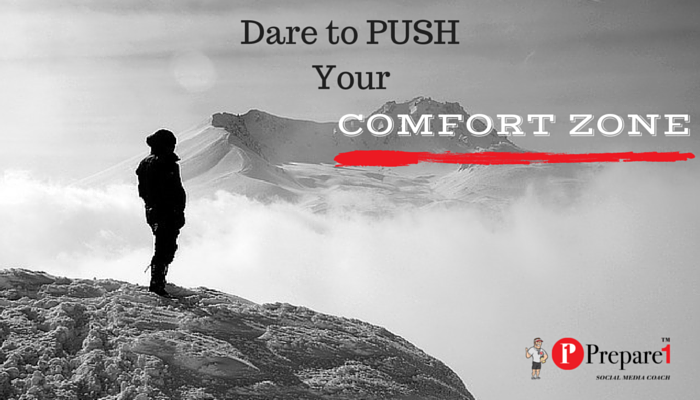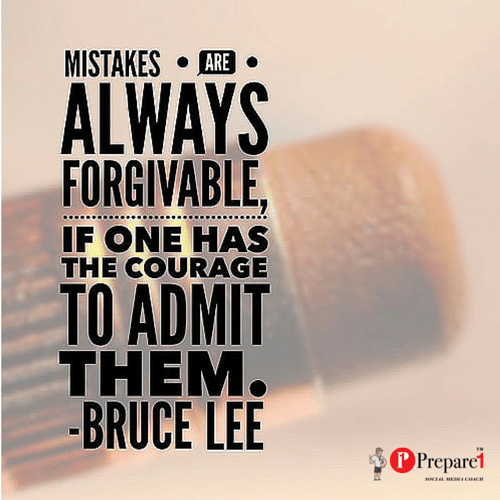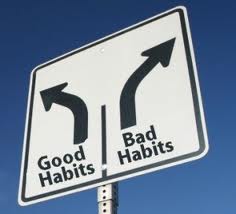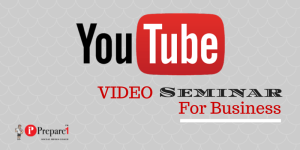
Have you gotten too comfortable?
Are you just coasting along and content?
If not, are you ready to take it to the next level?
The comfort zone is a psychological state in which a person feels familiar, at ease, in control and experiences low anxiety and stress. In the zone a steady level of performance is possible.
Stepping out of the comfort zone raises anxiety and generates a stress response. This results in an enhanced level of concentration and focus.
Many of us think of the “comfort zone” as a relic of ’80s motivational psychology and a tag line on cheesy corporate “reach for success” posters. But in fact, the comfort zone is a useful psychological concept that can help you embrace risk and make changes in your life that can lead to real personal growth.
COMFORT ZONES
When we step outside of our comfort zone, we’re taking a risk. This opens ourselves up to the possibility of stress and anxiety; we’re not quite sure what will happen and how we’ll react.
Social Media is a good example. For many years we’ve become comfortable with traditional marketing, but that is changing. Brands are rapidly embracing Social Media Content Marketing and transferring dollars away from traditional marketing to Social Media Marketing. Companies, employees and their culture are stepping out of their comfort zone to embrace this new media of engaging customers.
Has this caused some angst among companies and employees? You bet it has! Has it made companies and individuals more known to a wider audience? Absolutely!
Small business’s can now compete with big brands and become their own content marketing media. It took change to bring this about.
We’ve come to see stress as a dirty word — and for good reason — but a little bit of healthy stress can actually act as a catalyst for growth and provide a powerful motivation to act.
 Within our comfort zones, generally speaking, there’s little stress. According to one theory, the term comfort zone originated in reference to the temperature zone (67 to 78 degrees) where we’re most comfortable, and feel neither hot nor cold. Psychologically, our comfort zone is the place we’re most at home.
Within our comfort zones, generally speaking, there’s little stress. According to one theory, the term comfort zone originated in reference to the temperature zone (67 to 78 degrees) where we’re most comfortable, and feel neither hot nor cold. Psychologically, our comfort zone is the place we’re most at home.
While staying in your comfort zone can result in:
- Consistent performance
- Steady performance
- Less Stress
Feeling at ease, stepping out of your comfort zone into a new and challenging task can create the conditions for optimal performance. Think about it: Did you ever do something you were really proud of when you were in autopilot mode?
As humans we are creatures of comfort. Our comfort zone is our natural, neutral state — a place where stress and anxiety are minimal, where we know what’s coming next and can plan accordingly.
There’s nothing wrong with being in your comfort zone, unless you get too comfortable and start holding yourself back instead of challenging yourself to learn, grow and try new things.
Are you holding yourself back from something you’ve always wanted to do?
“Life always begins with one step outside of your comfort zone.”
― Shannon L. Alder
CHALLENGING YOURSELF
In order to achieve and grow in life, you will at some point have to step out of your comfort zone.
How can we expect to evolve in our lives and careers if we only stick to habit and routine? Reaching new heights involves the risk of attempting something we might not succeed at.
Is your desire to succeed outweighed by your fear of failure?
A little anxiety can help us perform at our peak, psychologists have found — in other words, when we challenge ourselves, we tend to rise to the occasion.
When we are little, we were natural risk takers. We knew no bounds, and yet as we age we know more and fear more of failure. I guess because sometimes it’s so painful.
Our comfort zones tend to shrink as we get older — but if we can keep expanding them, we’ll open ourselves up to greater fulfillment and improved well-being as we age.
A 2013 study found that learning new and demanding life skills, while also maintaining a strong social network, can help us stay mentally sharp as we get older
My father always taught me to be learning, and he believed and lived that until he drew his last breath. As long as I’m alive I want to be learning and growing. Are there pauses along the way? Sure.
Sometimes we need to take time to reflect and plan in a noisy world. Get away from your smartphones, TV shows, etc. Carve out some YOU TIME!
LET PERFECTION GO
Let it GO.
Nobody is perfect – don’t expect it and don’t long for it. Let go of that unnecessary pressure. As soon as you accept this you will find that you will lose the hesitation that has held you back in the past. You will learn to take risks where before you would have run. However, you still want to pursue and produce excellent work.

With risk comes the chance of failure, but more importantly, a chance of greatness. Failure is a given when you take risks, but the more you can embrace and learn from it, the better off you’ll be in the long run.
WISHED I… WOULDA… COULDA…SHOULDA
Have you ever known someone who regretted not taking that chance, that risk…whatever it may have been in their lives?
How did they respond? What were their thoughts and emotions?
I see the elation when I’m at these triathlons and marathons. Individuals who never thought they could start and finish, cross the finish line with sweat, exhaustion, yet have a smile of exhilaration. Some grown men and women with tears streaming down their face.
What was it that caused them to get out of their Comfort Zone?
Have you ever been to a point in your life where you said Enough is Enough? That’s the WOW moment, the BANG moment that puts your focus into high gear.
Do you want to get to the end of your life and wished, I Woulda, Coulda, shoulda?
OLD HABITS
We are creatures of habit. 95% of everything that you think, feel, do and achieve is the result of habit.
This process within our brains is a three-step loop.
1. The Cue
A trigger that tells your brain to go into automatic mode and which habit to use.
2. The Routine
Which can be either physical, mental, or emotional.
3. The Reward
Which helps your brain figure out if this particular loop is worth remembering for the future.
Over time, this loop-cue, routine, reward – becomes more and more automatic. The cue and reward become intertwined until a powerful sense of anticipation and craving emerges. Eventually a habit is born.

The problem is that your brain can’t tell the difference between bad and good habits, and so if you have a bad one, it’s always lurking there, waiting for the right cues and rewards.
- This explains why it’s so hard to create exercise habits., for instance or change what we eat. Once we develop a routine of sitting on the couch, rather than running, or snacking whenever we pass a doughnut box, those patterns always remain inside our heads.
How do habits change?
HOW TO CREATE NEW HABITS
Human psychology tells us that it is grounded in two basic rules.
1. Find a simple and obvious cue.
2. Clearly define the rewards.

Studies of people who have successfully started new exercise routines, for instance, show they are more likely to stick with a workout plan if they choose a specific cue, such as exercising as soon as they get home from work. Have a clear reward such as a snack or evening of guilt-free television.
We do know that for habits to permanently change, people must believe that change is feasible.
- Develop a clear list of Why’s.
- Why do I want to do this?
The evidence is clear: If you want to change a habit, you must find an alternative routine, and your odds of success go up dramatically when you commit to changing as part of a group.
The Framework for Change
Step One: Identify the Routine
Step Two: Experiment with Rewards
Step Three: Isolate the Cue (Trigger)
Step Four: Have a Plan
“Habit my friend, is practice long pursued, that at last becomes the man himself.”
– Evenus
MY CHALLENGE TO YOU:
-
STEP OUT OF YOUR COMFORT ZONE TODAY
-
LET ME KNOW HOW IT’S GOING
1. Identify a Habit that you want to change or replace, and write it down..
2. Write down as many why’s as you can for wanting to change or replace this habit.
3. Visual how you would feel if you mastered this Good Habit.
4. Work on developing an Internal Locus of Control. You are in control, which will lead to greater success, and happiness.
5. Repeat daily I am responsible!
6. Develop a strong belief for change.”Whatever you believe, with conviction, becomes your reality.”
“As a man thinketh, in his heart (his beliefs), so is he.”
– James Allen
JOIN US FOR OUR UPCOMING
SOCIAL MEDIA SEMINAR SERIES
- Facebook Ads – How to boost sales and leads – Jan. 28th
- YouTube & Video – How to create engaging videos that boost sales – Feb. 11th
- Visual Content for Business – How to get your business to stand out – Mar.10th
About Blair

Blair Evan Ball is a Social Media Coach and founder of Prepare1, a company that works with businesses, individuals and non-profits. He is a former executive with a Fortune 50 company, and his national division did $1Billion+ in sales annually.
Blair has written three e-books: Facebook for Business Made Easy, Facebook Pages for Business Made Easy, and WordPress Blog Setup Made Easy.
Blair also educates, trains entrepreneurs and business professionals how to amplify their brand, increase revenues, and raise more funds.
![[Study] How Will Businesses Change Their Social Media Activities 5 Golden Rules for Sharing on Social Media](https://www.prepare1.com/wp-content/uploads/2014/03/COACH-logohat-162x300.jpg) The Race is ON! | PREPARE | Get into the Game and WIN!
The Race is ON! | PREPARE | Get into the Game and WIN!











Comments on this entry are closed.
{ 1 trackback }